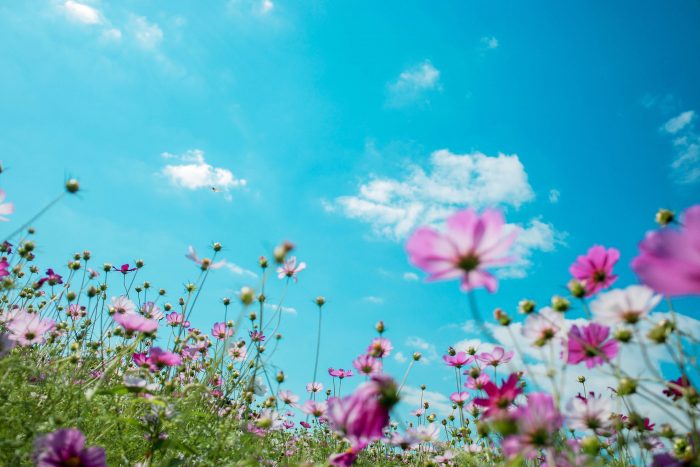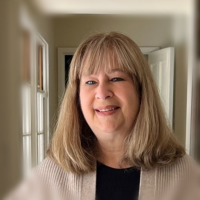Aside from the obvious health threat, the Corona virus is creating a significant disruption in many of our lives. Instead of our usual frantic schedules, we’re working remotely, canceling trips and events, eating in and staying at home. Instead of ready access to food and other supplies, we’re waiting in lines and scrambling for toilet paper.
But if we’re paying attention, there may be more going on than meets the eye. Amidst the fear for our health and worry over money – which is no small thing – we may be in the midst of a global reboot.
We’ve been living on this planet like there are endless resources and no consequences. We know that’s not true, but changing habits isn’t easy. We like what we like. We want what we want.
Underneath consumerism and climate change is a deeper issue. And it just so happens that our approach to flattening the curve of COVID-19 is exposing it. When we slow down, when we cut back, when we are “isolated”, we are left with ourselves. Without distractions like shopping or entertainment, the thoughts in our heads, the fears we normally suppress, the grief we’ve ignored rise to the surface. And, frankly, that scares the crap out of us.
We’ll do just about anything to avoid those feelings. Hence our propensity for shiny objects and streaming entertainment.
Interestingly, in the midst of this global crisis lies an opportunity to test drive our lives differently – to try out what it’s like to slow down, consume less, value what we have more, and care for those around us as well as taking care of ourselves.
I wrote an article a while back called The Accidental Minimalist. In it I talk about the internal adjustment it takes to live with less. Without the instant gratification of buying pretty new things, we are left to make peace with the voices and fears within. Keeping busy, distracted by material things is a way of avoiding that relationship with ourselves. But, as Jacob Needleman says in his book Time and the Soul,
“The answer to the problem and the sorrow of time is one thing and one thing only: the experience of meaning. And this experience occurs only when the Self touches the self, when the soul touches the ego. When the two worlds meet.”
In other words, we experience meaning when we commune with ourselves.
Being sequestered at home without the daily distractions of shopping, eating out, socializing, etc. offers us time to reacquaint ourselves with Ourselves. To listen to the wisdom and guidance of our inner voice. And maybe to discover we like being with ourselves and the need for distractions can diminish.
Here are the some other opportunities I see:
DEEPEN RELATIONSHIPS
A lot of families are sequestered at home together. Relationships are amplified by the close proximity. What can be discovered when we slow down? Have we been avoiding conflicts by keeping busy? Have we been skating by on surface connections? What gold has gone unmined?
WASTE LESS/VALUE MORE
With shortages of everything from food to toilet paper, and more shortages to come as supply chains are interrupted, we have the opportunity to increase our appreciation for what we have. There’s been a grievous amount of food waste in America. As part of this global reset, we have the opportunity to re-discover the value of things we’ve taken for granted and recognize that we need to consume less than we thought.
HELP THE PLANET
One of the first thoughts I had when I heard about flights being canceled and commuters staying home -besides the disruption to peoples’ lives – was what a relief it must be for the planet to have a break from pollutant gases. Granted there are times we have to travel, and even times we want to travel. But here is a chance to reconsider how we do things. If nothing else comes of this but companies teleconferencing more and flying less, I think we’re ahead.
LOVE YOUR NEIGHBORS
In Michael Moore’s documentary, Where to Invade Next, about health care systems around the world, what stayed with me is this. The countries that had health care for everyone did it because how could they not? It seemed obvious to them that it was only right to care for one another and support a good quality of life. A crisis like the one shows us who we are and what we care about. As the crisis progresses will we be there for our neighbors? Will we help each other or watch out only for ourselves?
Years ago, I went on an outdoor adventure and I’ve never forgotten the question the leader posed the first night around the fire. The program was called Touch the Earth and the question was: How shall we live?
Within this global epidemic lies an opportunity to re-think how we occupy this world. And maybe it’s no coincidence that it comes at a time when our planet is in such a dire crisis.
How we live is not a given. It is a choice. We can live sustainably, or we can live destructively. It’s up to us.
What insights are you gaining from this interruption to your daily routine?












Read 0 comments and reply